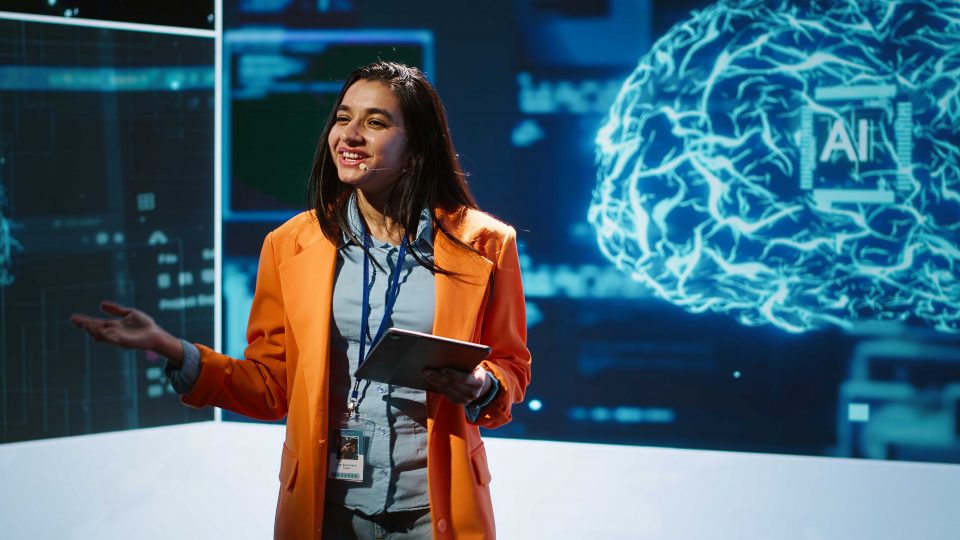How can artificial intelligence transform personalized learning in education? This question is at the forefront of educational innovation, as AI technologies promise to tailor learning experiences to individual needs, enhancing student engagement and outcomes. With AI, educational institutions can move beyond the one-size-fits-all approach, providing customized learning pathways that cater to each student's strengths, weaknesses, and interests. Research from McKinsey indicates that personalized learning can improve student outcomes by up to 30%.
Personalized learning involves using AI to analyze student data and create individualized learning plans. From adaptive learning platforms to intelligent tutoring systems, AI is reshaping the educational landscape, making learning more effective and enjoyable.
Tailoring Educational Content
AI-driven platforms can analyze a vast amount of educational data to deliver content that matches each student's learning style and pace.
- Adaptive Learning Platforms: These systems use algorithms to adjust the difficulty of learning materials based on the student's performance. For example, platforms like DreamBox and Knewton provide real-time feedback and adjust lessons to ensure optimal learning progression. According to a report by MarketsandMarkets, the global adaptive learning market size is expected to grow from $1.8 billion in 2019 to $4.9 billion by 2024.
- Intelligent Tutoring Systems: AI-powered tutors like Carnegie Learning and Squirrel AI offer personalized assistance by identifying areas where students struggle and providing targeted practice and resources. A study by the Brookings Institution found that AI tutoring systems can be as effective as one-on-one human tutoring.
Enhancing Student Engagement
AI can significantly boost student engagement by making learning interactive and tailored to individual preferences.
- Gamification: Integrating game elements into learning can make education more engaging. Platforms like Duolingo use AI to personalize language learning through interactive exercises and rewards. According to EdTech Magazine, gamified learning can increase student engagement by up to 60%.
- Interactive Learning Environments: AI can create immersive learning experiences using virtual and augmented reality. Companies like zSpace and Nearpod utilize AR/VR to provide hands-on learning experiences that are both engaging and educational. Research from the National Center for Education Statistics shows that students using interactive learning environments are 23% more likely to improve their grades.
Optimizing Teacher Workflows
AI also assists educators by automating administrative tasks and providing insights into student performance.
- Automated Grading: AI can grade assignments and provide feedback, saving teachers time and allowing them to focus more on instruction. Tools like Gradescope use AI to streamline the grading process and offer detailed analytics on student performance. A report by EdSurge highlights that automated grading can reduce grading time by up to 50%.
- Predictive Analytics: AI can analyze student data to predict academic outcomes and identify students at risk of falling behind. Early intervention can then be provided to support these students, improving retention rates and academic success. According to the International Society for Technology in Education (ISTE), predictive analytics can increase student retention rates by 10-20%.

Bridging Educational Gaps
AI has the potential to bridge educational gaps by providing quality education to underserved communities and students with diverse needs.
- Accessibility: AI can create customized learning materials for students with disabilities. For example, tools like Microsoft's Immersive Reader help students with dyslexia by providing text-to-speech and adjustable reading settings. According to the World Economic Forum, AI-powered accessibility tools can enhance learning for over 700 million students with disabilities globally.
- Language Translation: AI-powered translation tools can help non-native speakers access educational content in their preferred language. Google Translate and Microsoft's Translator are widely used to break down language barriers in education. Research by UNESCO indicates that AI translation tools can improve educational access for 80% of students in multilingual classrooms.
Balancing Innovation and Privacy
As AI becomes more integrated into education, it's essential to address privacy and ethical concerns to protect student data and maintain trust.
- Data Security: Ensuring the privacy and security of student data is paramount. Educational institutions must implement robust data protection measures and comply with regulations like GDPR. According to the Data Quality Campaign, 92% of parents support the use of data to improve education, provided privacy is protected.
- Ethical AI Use: Transparent AI practices and unbiased algorithms are crucial for fair and equitable education. Institutions must ensure that AI tools are used responsibly and do not reinforce existing biases or inequalities. A report by the AI Now Institute emphasizes the importance of ethical AI in education to avoid perpetuating biases.
Embrace the Future of Education with AI
The integration of AI into education promises to revolutionize personalized learning. The ability of AI to customize educational experiences to individual needs holds tremendous potential to improve student outcomes, engage learners, and streamline teaching processes. However, embracing these innovations requires careful consideration of data privacy, ethical use, and equitable access to technology.
By adopting AI responsibly, educational institutions can harness its power to transform learning, making it more inclusive and effective. The future of education is bright, and AI is at the forefront of this transformation, ready to unlock new possibilities for personalized learning and beyond.






